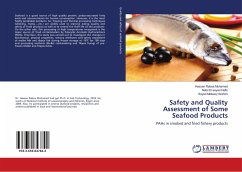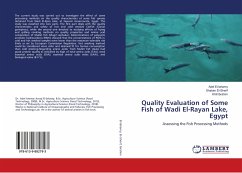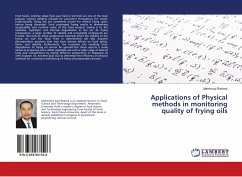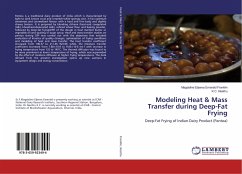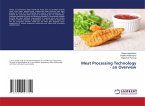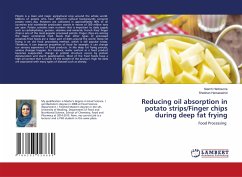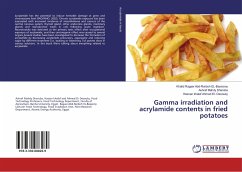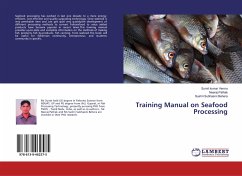Seafood is a good source of high quality protein, polyunsaturated fatty acids and micronutrients for human consumption. However, it is the most highly perishable products. So, freezing and thermal processing techniques (smoking, frying....etc.) are widely used to improve eating quality and safety of food products as well as to extend the shelf life of the products. On the other side, fish processing at high temperatures recognized is the major source of food contamination by Polycyclic Aromatic Hydrocarbons (PAHs). Therefore, this study was carried out to investigate the changes in biochemical, physical properties, sensory attributes and safety assessment of mullet fish and tilapia fish during frozen storage at -18°C for 180 days and processing methods (Mullet cold-smoking and Tilapia frying) of pre-frozen Mullet and Tilapia fishes.
Bitte wählen Sie Ihr Anliegen aus.
Rechnungen
Retourenschein anfordern
Bestellstatus
Storno

